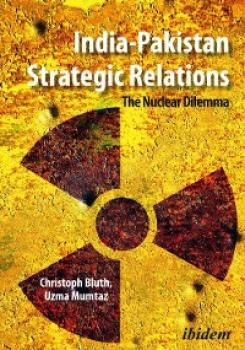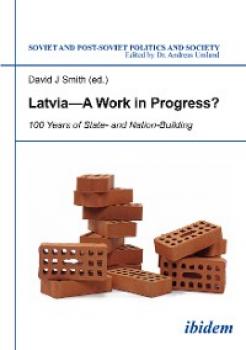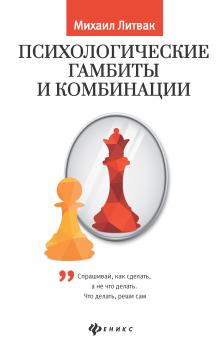ТОП просматриваемых книг сайта:















Социальная психология
Различные книги в жанре Социальная психология, доступные для чтения и скачиванияАннотация
2019 was a defining year for the radical right globally. From national and supranational elections that witnessed a surge in support for radical right parties to transnationally-inspired terrorist attacks in New Zealand, the USA, and Germany, the radical right is not just on the rise, but becoming an international mainstream phenomenon. The yearbook draws upon insightful analyses from an international network of scholars, policymakers, and practitioners who explore the processes and impact of the radical right. Beginning with reflections on the ideology and then historical perspectives of the radical right, the volume then turns to contemporary manifestations of movements and political parties as well as terrorism and the role of online spaces. It ends by examining various perspectives towards countering and challenging the radical right.
This overview provides a widespread examination of the global radical right in 2019, which will be useful to scholars, students, policy makers, and the public.
This overview provides a widespread examination of the global radical right in 2019, which will be useful to scholars, students, policy makers, and the public.
Аннотация
The biannual, peer-reviewed Journal of Romanian Studies, jointly developed by The Society for Romanian Studies and ibidem Press, examines critical issues in Romanian studies, linking work in that field to wider theoretical debates and issues of current relevance, and serving as a forum for junior and senior scholars. The journal also presents articles that connect Romania and Moldova comparatively with other states and their ethnic majorities and minorities, and with other groups by investigating the challenges of migration and globalization and the impact of the European Union.
Issue No. 3 contains:
Alexandra Chiriac: Ephemeral Modernisms, Transnational Lives: Reconstructing Avant-Garde Performance in Bucharest
Petru Negura: Compulsory Primary Education and State Building in Rural Bessarabia (1918-1940)
Vladimir Solonari: Record Weak: Romanian Judiciary in Occupied Transnistria
Delia Popescu: A Political Palimpsest: Nationalism and Faith in Petre Țuțea’s Thinking
Cynthia M. Horne: What Is too Long and When Is too Late for Transitional Justice? Observations from the Case of Romania
Brindusa Armanca and Peter Gross: Searching for a Future: Mass Media and the Uncertain Construction of Democracy in Romania
Issue No. 3 contains:
Alexandra Chiriac: Ephemeral Modernisms, Transnational Lives: Reconstructing Avant-Garde Performance in Bucharest
Petru Negura: Compulsory Primary Education and State Building in Rural Bessarabia (1918-1940)
Vladimir Solonari: Record Weak: Romanian Judiciary in Occupied Transnistria
Delia Popescu: A Political Palimpsest: Nationalism and Faith in Petre Țuțea’s Thinking
Cynthia M. Horne: What Is too Long and When Is too Late for Transitional Justice? Observations from the Case of Romania
Brindusa Armanca and Peter Gross: Searching for a Future: Mass Media and the Uncertain Construction of Democracy in Romania
Аннотация
India and Pakistan have been in a state of persistent conflict that goes back to the very creation of these states after decolonization. This conflict has resulted in several wars and continuing armed clashes. After both states became nuclear powers, one would have expected a fundamental change in the way they wage war, since it is a fundamental principle of International Relations theory that nuclear-armed states do not go to war with each other. But the situation in South Asia seems to defy this principle. India’s conventional superiority should be neutralized by Pakistan’s nuclear capability, while Pakistan’s risk-taking behavior should be reduced. But as a matter of fact, the situation has turned out quite differently: Although large-scale conventional wars have not occurred, the nuclear status seems to have encouraged conflict and risk-taking. The number of armed clashes rose.
Bluth and Mumtaz scrutinize the atypical and seemingly paradoxical impact of nuclearization on the conflict between India and Pakistan, paying extra attention on the question of how stable this paradoxical strategic relationship is. They demonstrate that the dominant paradigm used in the International Relations literature is by far not adequate to explain the strategic relations between India and Pakistan and set to work on developing a more coherent explanation. A must-read for everyone interested in International Relations and conflict resolution research.
Bluth and Mumtaz scrutinize the atypical and seemingly paradoxical impact of nuclearization on the conflict between India and Pakistan, paying extra attention on the question of how stable this paradoxical strategic relationship is. They demonstrate that the dominant paradigm used in the International Relations literature is by far not adequate to explain the strategic relations between India and Pakistan and set to work on developing a more coherent explanation. A must-read for everyone interested in International Relations and conflict resolution research.
Аннотация
What is political correctness? What is conformism? And could one say that pre-emptive conformism is a part of the increasingly prevalent climate of political correctness encountered today? The authors of «PC on Earth» take issue with a fashionable phenomenon emerging from North American campuses that is beginning to take hold in Europe, too: the dangerous consequences of identity politics and pre-emptive conformism, which they define as an essential element of political correctness. This book is a collection of short stories, satire, philosophical analysis, travel reports, political analysis, and personal experiences. The authors, all Europeans, present diverse views on a controversial topic. This collection offers readers independent and free-thinking opinions they will get nowhere else.
Аннотация
A quarter century after the formation of the Popular Front and a decade since joining the EU, processes of state- and nation-building in Latvia are still on-going. Issues such as citizenship, language policy, minority rights, democratic legitimacy, economic stability, and security all remain objects of vigorous public discussion. The current situation also reflects longer-standing debates on the relationship between state, nation, and sovereignty in Latvian society and polity. By examining different aspects of these relationships, this volume aims to reveal both key turning points and continuities in Latvia's development, thereby helping to inform current debates.
Аннотация
Collective action problems are ubiquitous in situations involving human interactions and therefore lie at the heart of economy and political science. In one of the most salient statements on this topic, Elinor Ostrom (co-recipient of the 2009 Nobel Memorial Prize in Economic Sciences) even claims that “the theory of collective action is the central subject of political science”. The current volume, Modern Dilemmas: Understanding Collective Action in the 21st Century, is a collection of essays which target the problem of collective action from both a theoretical and applied perspective. The volume consists of four parts, each of these providing insights into different research fields. Thus, the first part, Theoretical Approaches, offers a guideline to the study of collective action in public choice theory and rational choice institutionalism and shows how it can be connected to other research programs such as constructivism, social network analysis and contractualism. The second part, Collective Action and Responsibility, tackles issues specific to political philosophy such as collective and individual responsibility and the morality of free-riding behavior. The third part, Collective Action and Public Policies, presents empirical studies on collective action in relation to educational policies, health policies and policies which target food security. Finally, the fourth part, Collective Action, Political Institutions and Social Movements, consists of various studies on classical problems of collective action such as political protests and revolutions, but also problems which are not traditionally associated with collective action such as party funding and the role of international organizations in economic recessions. The multidisciplinary character of the volume therefore makes it an interesting reading for students and scholars working in a number of different areas of study, such as political science, economy, political philosophy, public policies, comparative politics and international relations.
Аннотация
Over more than half a decade, the so-called Democratic Antifascist Youth Movement Nashi dominated state-sponsored youth politics in Russia. It communicated demands from official discourse to a young audience and formed part and parcel of the “Putinist” project of political stabilization. Nashi emphasized the importance of a powerful state, economic strength and Russian unity against domestic and external enemies threatening the country. Moreover, an idealized narrative of the Great Patriotic War against Nazi Germany of 1941-1945 served as a template for the current situation in Russia. Nashi mobilized young Russians through its emotional appeal, skillful use of symbolic politics and the promise for professional self-realization. Nonetheless, the movement’s long-term impact remained limited – above all, because of its own internal contradictions.
This volume features three case studies that illustrate the interplay between the politics of history, security and modernization. They cover the foundation of Nashi in 2005, the movement’s role during the 2007 conflict with Estonia over the “Bronze Soldier,” and the International Youth Forum, organized by the Russian government and Nashi at Lake Seliger in summer 2010. Through the analysis of official publications, internal documents, interviews and participant observation, this book furthers a deeper understanding of state-sponsored youth politics in early 21st century Russia.
This volume features three case studies that illustrate the interplay between the politics of history, security and modernization. They cover the foundation of Nashi in 2005, the movement’s role during the 2007 conflict with Estonia over the “Bronze Soldier,” and the International Youth Forum, organized by the Russian government and Nashi at Lake Seliger in summer 2010. Through the analysis of official publications, internal documents, interviews and participant observation, this book furthers a deeper understanding of state-sponsored youth politics in early 21st century Russia.
Психологические гамбиты и комбинации. Практикум по психологическому айкидо - Михаил Литвак
Психологические этюды (Феникс)Аннотация
В книге описаны конкретные примеры использования психологического айкидо для налаживания отношений и решения конфликтных ситуаций в семье, на производстве и в других сферах деятельности человека, где от техники общения зависят качество жизни и эффективность деятельности.
Книга рассчитана на психологов, психотерапевтов, администраторов, руководителей, педагогов и всех тех, кто интересуется проблемами общения.
Информация о книге
Автор произведения Михаил Литвак
Аннотация
В книге описана оригинальная методика психологического тренинга, помогающая наладить общение в различных сферах деятельности. Она основана на принципе амортизации, разработанном автором.
Рассчитана на руководителей, администраторов, педагогов, психологов, психотерапевтов и всех, кто интересуется проблемами общения.
Информация о книге
Автор произведения Михаил Литвак
Ваш билет на экзамене жизни. 102 ответа на жизненно важные вопросы - Анатолий Некрасов
Мастер психологииАннотация
В большинстве своём люди не знают самой важной информации в своей жизни – они не знают, зачем живут! Мы не задумываемся над смыслом жизни, а зря – ведь это то, что выделяет человека среди всех других существ. Отсутствие ясности в этом вопросе и наличие значительных заблуждений приводят к потере истинных ориентиров, уходу человека с оптимального пути и, как следствие этого, к потере интереса к жизни, основных человеческих качеств – ив результате короткая жизнь со множеством страданий. Эта книга станет вашим помощником, настоящим советчиком, к которому вы сможете обращаться при возникновении жизненных трудностей.










